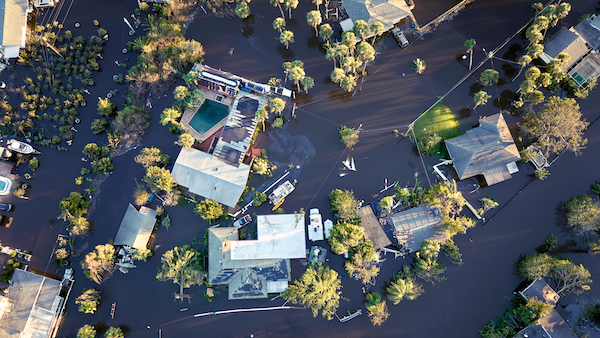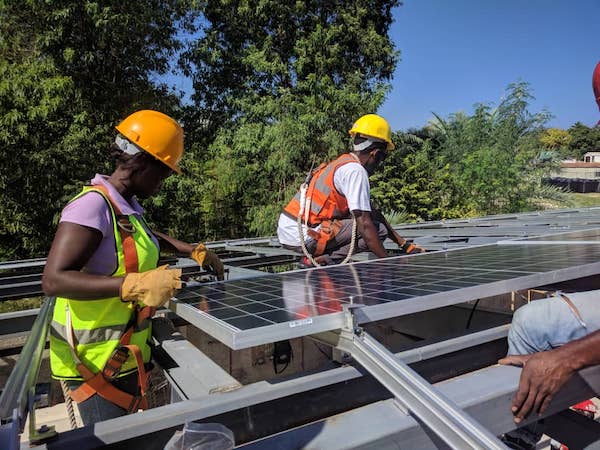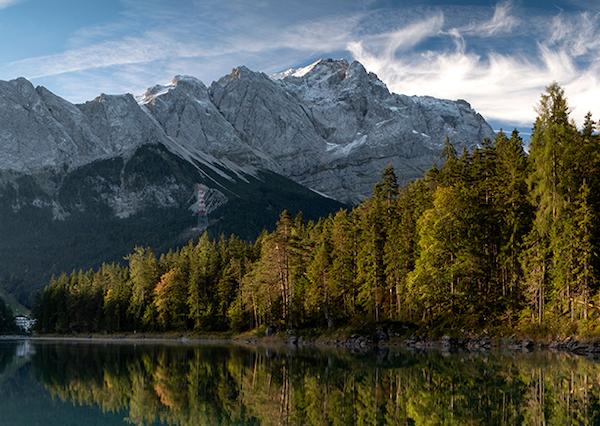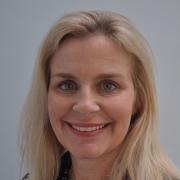This article is sponsored by Verizon.
Innovation always has an origin story. And its foundation is frequently forged in problem-solving.
Yet many impact-driven startups struggle to get off the ground due to a lack of financial resources and strategic support. And with some 90 percent of startups failing, according to the latest data, survival can be even more challenging for young climate tech companies.
The world needs climate resilience innovation more than ever. As of September 2023, the National Oceanic and Atmospheric Administration reported a record 23 weather and climate-related disasters in the U.S. during the year, including Hurricane Idalia and the Hawaii Firestorm. The cumulative price tag of these events approached nearly $58 billion in damages and 250-plus lives lost. Historically underrepresented communities will bear the brunt of the worst climate change has to offer, which makes resiliency all the more vital.
To support game-changing climate tech solutions, Verizon launched the Verizon Climate Resilience Prize in 2021. Each year, several climate tech startups innovating to help the world prepare for tomorrow’s climate receive $125,000 and consulting services to support organizational development as they scale. They are selected based on their innovative, technology-enabled strategies; ready-to-scale solutions; and focus on helping at-risk communities become more resilient to future climate crises.
The 2023 cohort of winners is helping communities better bounce back from climate impacts by promoting financial resilience, communication and evacuation management tools, emergency clean energy sources and more.
“These award winners represent resiliency initiatives that leverage advanced technology to help enable economic, environmental, and social advancement,” said Verizon Manager of Social Innovation Stephanie Kinlock. “Their solutions will help protect the most vulnerable populations from the adverse effects of climate change.”
Here are four companies Verizon recognizes and supports for advancing climate resilience through innovation:

Image courtesy of Raincoat.
1. Raincoat: Providing financial resilience after climate disasters
As the climate crisis continues to devastate communities across the globe, this is creating a high financial toll. Recovering from climate disasters financially is often critical for nurturing long-term community well-being. But often, individuals must deal with insurance companies when their homes are damaged or destroyed, which can be as frustrating as it is time-consuming.
After Hurricane Maria decimated Puerto Rico in 2017, Jonathan Gonzalez experienced this firsthand while negotiating with insurance companies on behalf of his mother. That led him to found Raincoat, which provides financial resilience for individuals after natural disasters.
Raincoat’s mission is to protect every person on the planet from the financial disruption of natural disasters. Raincoat collaborates with insurers, financial institutions, nonprofits, and governments to underwrite parametric flood insurance policies.
Based in San Juan, Puerto Rico, the company’s team of engineers, scientists, UX designers, and insurance experts are developing the next generation of parametric insurance in Florida, California, New York and Washington State. Raincoat partners with insurers, reinsurers, and governments worldwide in developing and distributing these solutions.
“Our mission is to help protect every person on the planet from the financial disruption of natural disasters, especially people that have nothing to do with the creation of those events,” said Gonzalez.
2. Perimeter: Improving communication and evacuation management
When climate disasters strike, chaos ensues. It is common for electrical grids and communication systems to break down, making it difficult for first responders to coordinate and help those in need. Recently, this tragically was witnessed in Maui during the firestorm that devasted Lahaina.
After experiencing multiple wildfire evacuations firsthand, including a devastating California blaze that threatened her health-compromised mother, Bailey Farren co-founded Perimeter, a company developing an all-risk solution supporting information sharing and collaboration across disciplines, jurisdictional boundaries, and the public. This functionality supports information sharing and collaboration, making real-time evacuation management software accessible to all types of first responders and the public.
“One aspect of climate resilience is being able to respond quickly to changing circumstances, and technology can help us further access that critical information when seconds really do count in our response,” said Farren.
.jpg)
Image courtesy of Sesame Solar.
3. Sesame Solar: Providing short-term clean energy solutions during disasters
With the fossil-fuel-reliant electrical grid being vulnerable to extreme weather events, many communities lose power in their wake. Yet reliable power can be a matter of life or death during these disaster scenarios. Often, this means bringing in fossil-fuel-powered generators, which can exacerbate climate crisis conditions.
This challenge inspired Lauren Flanagan to found Sesame Solar, which provides quick access to reliable, off-grid, fossil-fuel-free energy to communities working through catastrophic events. The company seeks to break the cycle of fossil-fuel-powered generators that further contribute to climate change—replacing them with renewable, mobile energy solutions that are durable, easy to use, and flexible for various use cases. It aims to make renewably-powered mobile nanogrids fast to deploy, easy to use, and available anytime, anywhere.

Image courtesy of 10Power.
4. 10Power: Expanding clean energy access to underrepresented communities
A major part of building climate resilience involves increasing access to renewable energy in underrepresented communities that often suffer the worst from climate impacts. Being less reliant on the fossil-fuel-powered electrical grid means these communities can better endure climate impacts when they inevitably hit.
To address these needs, Sandra Kwak founded 10Power, which works with local partners to develop and finance commercial-scale solar projects based on a social enterprise model of reinvesting its revenue to increase impact. This coordination helps advance clean water access, gender empowerment, livelihood improvement, and educational and technological opportunities. Currently, the company is deploying resilience hubs at American Indian reservations in Minnesota, including an onsite energy generation and energy storage project to power and heat a school and an elderly care center on the White Earth Indian Reservation. Her vision for 10Power was molded after learning about climate change from an early age and later in life, when she visited South Korea with her Korean-born father and saw a country transformed from impoverished to prosperous. These experiences helped her reimagine what was possible. “It’s incredibly important that the communities who are being hardest hit by climate change are able to adopt technology the fastest,” said Kwak.

